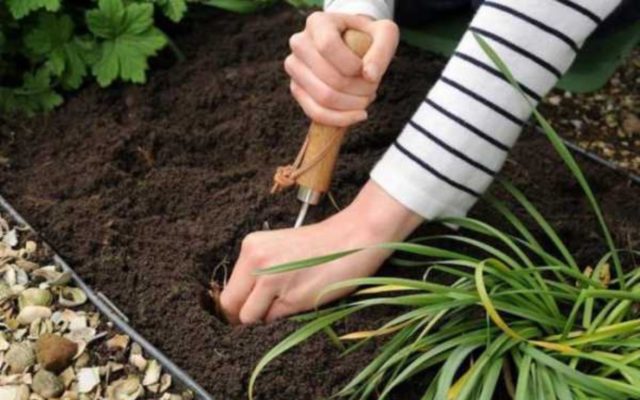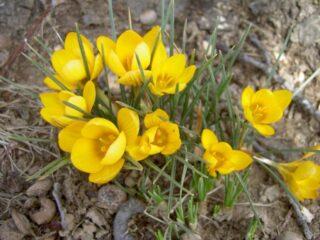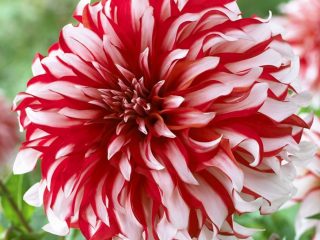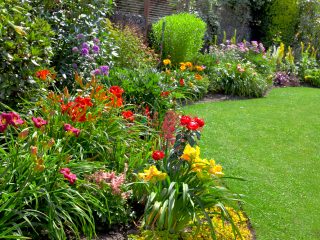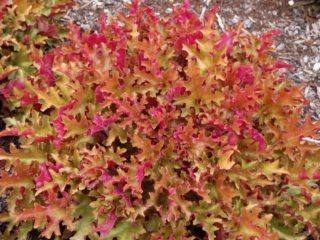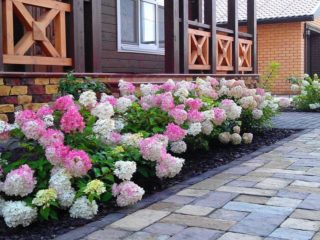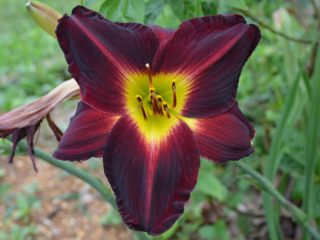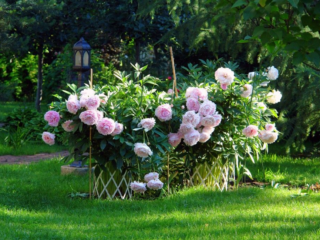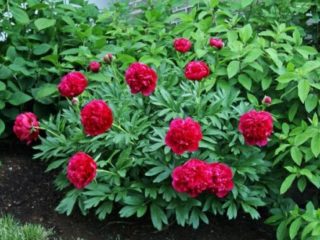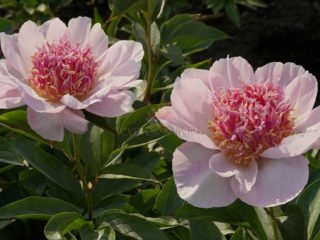Content
Colchicum cheerful or bright is a bulbous perennial. Its life cycle is different from other horticultural crops. Colchicum blooms in the fall, when many plants are already actively preparing for winter sleep. Therefore, its opening buds look exquisite against the background of dull autumn weather, which is pleasing to the eye. Another name for the plant is colchicum.
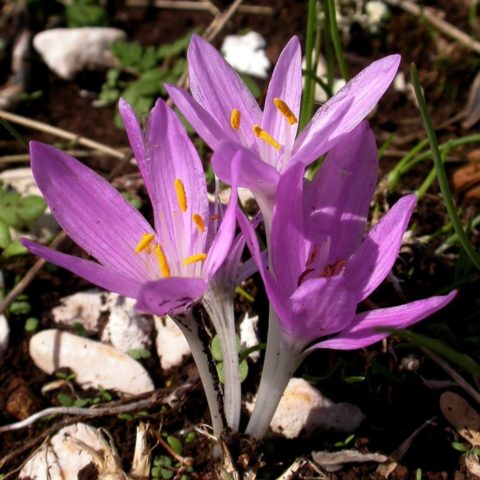
Colchicum flowers resemble crocuses, but appear in autumn
Description of the cheerful colchicum
This culture belongs to the Colchicum family. The above-ground part is renewed annually in spring and consists of succulent grassy leaves. The height of this bulbous perennial varies between 5-25 cm.
Colchicum forms 4 reed leaves, the lower of which is the widest with a blunt end, and the upper ones are pointed. The shade of the plates is bright green. The leaves form a basal rosette. Although this perennial blooms only in the fall, the growing season begins in early spring. It is during this period that the first leaves emerge from the ground, the length of which reaches 20-30 cm.
Subsequently, a seed capsule emerges from the center of the rosette, which is a continuation of the previous autumn flowering. It grows gradually and becomes mature by the end of May.Inside are red-brown seeds, which are subsequently carried by the wind. After they ripen, the aerial part of the Colchicum merry gradually dries out. At the same time, you cannot cut off the leaves until they completely wither, since they are the ones that feed the bulb. At the beginning of June, the first period of rest begins.
And only with the arrival of autumn the life cycle of this bulbous perennial resumes. At this time, the cheerful colchicum blooms. This period lasts about 3 weeks. The plant forms bare erect peduncles. Their height reaches 20-25 cm. The largest part is the goblet-shaped corolla itself.
The flowers of the cheerful crocus (photo below) are simple, consisting of lanceolate oblong petals 4 cm long, exuding a pleasant aroma. Their color is mauve. When the glass is fully opened, stamens up to 2 cm long with yellowish anthers can be seen in the center. The columns are thin, thread-like, erect. They are slightly thickened at the top and much longer than the stamens.

The plant produces from 1 to 3 flowers per season
The underground part is presented in the form of a large oblong bulb, from 3 to 5 cm long and about 3 cm in diameter. Its color is creamy, but the top is covered with dark brown scales. The supply of nutrients is concentrated in the bulb.
Colchicum cheerful has an average level of frost resistance, despite the fact that its homeland is the Mediterranean. The plant can withstand temperatures down to -17 degrees. But when growing a perennial in the northern regions, additional shelter for the winter is necessary so that the bulbs do not freeze.
This crop is undemanding in terms of care and soil composition.Colchicum cheerful can grow and fully bloom in any soil, regardless of the acidity level. It only requires that the soil have good moisture and air permeability.
Where does the flower grow
In its natural environment, this culture can be found in the Mediterranean, North Africa and Southeast Asia. In Russia, the bulbous perennial grows in the Eurasian part and the Caucasus. There have also been cases of successful finds in the Kuban region.
Colchicum cheerful prefers to grow in forest glades and edges under the canopy of bushes, where the sun's rays reach and there is no stagnation of moisture. And also in the meadows and steppes of the lower and middle mountain zones. Colchicum cheerful is listed in the Red Book, since thoughtless picking of its flowers for bouquets leads to depletion and further death of the bulbs. Therefore, the number of this plant is sharply declining.
Planting and caring for flowers
It is necessary to plant Colchicum cheerful in open ground in August. During this period, the bulb has already managed to store up nutrients, but is still in the dormant stage. The site for the plant should be chosen in partial shade, where water does not stagnate. 2 weeks before planting, you need to dig it up and add humus and sand at the rate of 1 bucket per square meter. m. You should also carefully remove all the roots of perennial weeds and level the surface.
Landing algorithm:
- Make holes 12 cm deep at a distance of 30 cm from each other.
- Pour 20 g of superphosphate, 10 g of potassium sulfate and 100 g of wood ash into them.
- Mix everything thoroughly with the soil.
- Place each onion in a separate hole, bottom down.
- Sprinkle with earth and compact the surface.
- Water generously.
You should not expect that after rooting the plant will begin to grow leaves, since they will appear only with the arrival of spring.
This culture does not require special care. During the growing season in spring, there is no need to water the plant, since after winter the soil is quite moist. At this time, you only need to weed the crocus and loosen the soil near it to maintain air access to the bulbs.
The first feeding should also be carried out during this period. To do this, you can use nitroammophoska at the rate of 30 g per 10 liters of water. The second and third time to fertilize Colchicum euphoria is when the buds are forming and after flowering. During this period, use superphosphate (20 g) and potassium sulfate (10 g) for the same volume of liquid.
At the end of flowering and before winter, you need to cut off the wilted flower stalks at the base. Then sprinkle the surface of the soil with sawdust or fallen leaves. In the northern regions, you need to additionally cover the top with spruce branches.
What plants does it go with?
The Colchicum cheerful plant is ideal for creating rockeries and alpine slides. This crop can be combined with ground cover white roses and alyssum of the same shade. The beauty of this perennial can be successfully emphasized by boxwood and low-growing species of juniper planted in the background.This combination will add the missing green tint.
Colchicum cheerful goes well with creeping crops, such as tenacious, periwinkle, woodweed, and mountain weed.
Interesting facts about Colchicum cheerful
This plant is distinguished not only by its beautiful flowers, but also by its unusual life cycle. There are also other interesting facts about this plant.
Colchicum is similar to saffron in many ways, but they are not related crops. Although the flower can grow in mountainous areas and on rocky soil, it cannot be found in Scandinavia.
This culture accumulates colchicine in all parts, which is why it received one of its names. This component is widely used in studies of polyploidy in plants.
If necessary, Colchicum can be used for forcing by a certain date, if favorable conditions are provided in the greenhouse. It is better not to do this at home because the plant is poisonous.
Medicinal properties
Although the crocus contains dangerous substances, it is widely used in medicine. On this basis, medicines are prepared that help with asthma, leukemia, infectious nephritis and even malignant tumors.

The bulbs and seeds of the plant have healing qualities to a greater extent.
This plant has antioxidant, diuretic, laxative, antiemetic and analgesic effects.
Ointments and tinctures for external use are prepared on the basis of Colchicum merry. They help with diseases of the musculoskeletal system and swelling of the joints.
Conclusion
Colchicum cheerful is a beautiful plant that, with its bright flowers, can dilute the gloom of autumn days. To preserve this crop for posterity, you do not need to dig up the plant in the forest.To do this, it is enough to purchase bulbs at any gardening store, which are specially grown for landscaping garden plots.


